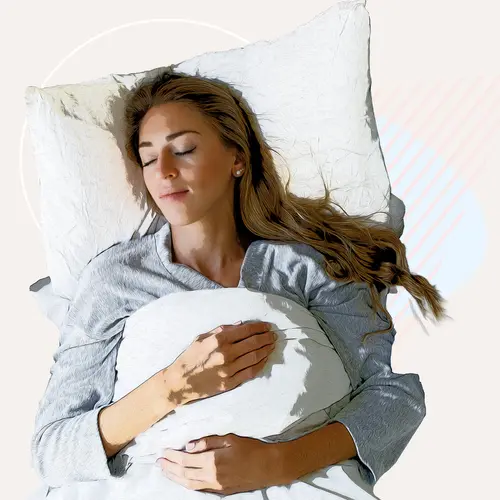Sleep has never been easy for Leslie Partridge Sachs, a dancer, choreographer, and mother of two young girls who lives in Garrison, N.Y. Even as a child, she says, "I had trouble falling asleep and staying asleep." Once she became a mother, her insomnia worsened.
"I sleep very lightly -- I hear my daughters even if they turn over in bed. And most mornings I wake up at 3:30 or 4 and can’t get back to sleep." Her average night’s shut-eye of four to five hours affects her mood. "I feel irritable," Sachs, 47, says. "I’m often short-tempered." But she’s not sure what to do.
The health effects of sleep deprivation
Sachs’ plight is not uncommon. One in three American adults has occasional insomnia; one in 10 has chronic problems staying asleep. Moreover, women are twice as likely as men to have trouble sleeping. The resulting fatigue can do more than just make you crabby: Sleep deprivation raises the risks of high blood pressure, heart disease, obesity, diabetes, depression, accidents, and anxiety.
So what should you do when you wake up in the middle of the night and your mind begins to spin? The answers may be simpler than you think.
Whether it's 1 a.m. or 4 a.m., "get out of bed after 20 minutes and do something else," says Matthew Ebben, PhD, a certified sleep specialist at the Center for Sleep Medicine at New York-Presbyterian Hospital/Weill Cornell Medical Center and assistant professor of psychology in neurology at Weill Cornell Medical College. “If you lie in bed awake, you just teach your body and mind that bed is a place where you lie awake worrying."
Instead, he says, find a not-too-thrilling book to read or watch television until you feel sleepy and can go back to bed. But don’t get too close to the television, work on the computer, or turn on bright lights.
"These disrupt your circadian processes," he says, "which can make it harder to get back to sleep in the short term and disrupt your sleep patterns in the long term."
If you’re really hungry, eat a light snack (carbohydrates are best), but skip the temptation to have any alcohol.
Take care with sleep aids
Sachs has experimented with medications to help her sleep, but doctors warn that care should be taken with such sleep aids. Follow these guidelines:
Get the timing right. Find out how long the effects of a medication will last in your system. If you take some sleep aids too late at night, you may end up feeling groggy -- even dizzy -- the next day.
Keep it short. Use pills for short-term problems, like adjusting to a time zone, getting through a stressful period, or ensuring good sleep before a big presentation. When you take sleeping pills for more than a few weeks, they can lose their effectiveness. You can also become dependent on them.
And if your insomnia is chronic, like that of Sachs, see a slumber specialist to learn cognitive-behavioral techniques -- including visualization, thought-stopping, and better sleep habits -- that allow you to change your thoughts and behaviors instead of taking pills.

